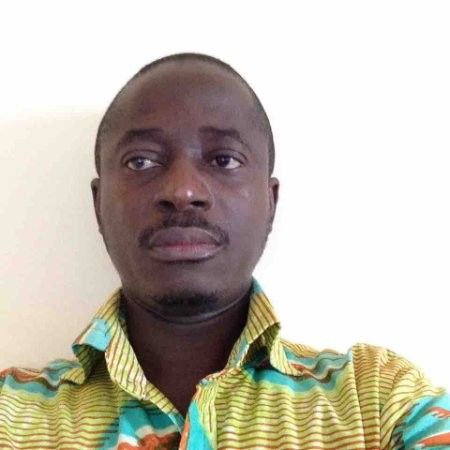STEM, also known as science, technology, engineering, and mathematics, has been the core of Ghana’s national education curriculum since 2019 as part of a drive to boost its people’s employability and overall economic development of the country.
Last October, Ghana’s Ministry of Education (MOE) announced that the curriculum will undergo a review process to incorporate “content related to contemporary developments that have not traditionally been part of the education system,” Modern Ghana previously reported.
Yaw Osei Adutwum, Ghana’s current education minister, also said in an interview last December that the ministry is infusing STEAM – which incorporates arts into STEM – in the high school curriculum so students can study music or art for one year.
To find out the role of arts in cultivating an innovation-ready workforce and how this African nation plans to weave that into its core curriculum, GovInsider speaks to Desmond Ali Gasongol, Director for Arts and Culture with Ghana Education Service (GES), and Selina Torrison Saaka, Country Lead, Centre for Education Innovation and Development (CEID) to learn more.
Arts to become a core subject in the new curriculum
The revised curriculum, known as the New Standard Based Curriculum, will incorporate multifaceted aspects of performing arts – dance, music, and drama – into the national education curriculum.
Previously, only some elite schools offered music as the only art subject, says Gasongol from GES, a subsidiary under the country’s MOE that is responsible for developing the national education curriculum.
Instead of being an extracurricular activity, performing arts will now be made mandatory for learners in kindergartens, primary and junior high schools to be studied and examined in the core curriculum, and be offered as an elective for senior high and technical vocational schools.
As it is still in the early stages of implementation, GES has set up a Cultural Education Unit that helps supervise and guide the teaching and learning of arts in classrooms. GES also organises cultural festivals and competitions where learners can come together around different performance arts.
According to Modern Ghana, the new curriculum aims to cultivate skills like creativity, problem-solving abilities, critical thinking, and effective communication among learners to bridge the gap between STEM theory and practical applications.
Two-fold value of arts: workforce and democracy
“Is it not the visual artist who designs new models of cars, trains, mobile phones, to mention a few? It is my belief that incorporating arts into STEM can make education holistic, and ensure that Sustainable Development Goal (SDG) 4 is being met,” says Gasongol.

SDG 4 targets to ensure inclusive and equitable quality education for all.
Saaka from CEID, one of GES’ partners in developing an arts-based curriculum, is pleased about the changes to the curriculum as it is now “more inclusive.” Previously, arts education was belittled as students who took an arts-related course in university would be looked down upon as less capable, she explains.
Gasonsol adds that the new curriculum also targets to build the character, nurture values, and raise confident and engaged citizens who can think critically.
This is seconded by Saaka, who adds that today’s education needs to be aligned with outcomes expected in the 21st century, and those skills are integral for decision making.
Additionally, arts education can help build “a critical muscle” among younger citizens, so that they can participate in the national discourse on priority issues, Saaka says.
The organisation is targeting an integrated approach to bring arts and advocacy together around initiatives such as gender equality, mental health, and enterprise development in Ghana.
MOE partnering for greater success in implementation
Founded in January 2022, CEID has been at the forefront of advocating for a greater emphasis on arts in Ghana’s education curriculum.

Its art programmes for public schools currently span storytelling, poetry combined with dance and performance, and high school poetry competitions.
Gasongol shares that nonprofit organisations such as CEID have played a significant role in supporting MOE in the implementation of arts in the curriculum, by taking a lead on community-building initiatives such as festivals and competitions for learners across all levels to participate in arts.
“One of which is poetry writing and performance for students in senior, technical high schools, which has culminated in an award ceremony organised in the University of Ghana, Legon Campus, to recognise deserving students in this competition.
“GES hopes that this will be expanded to include Basic Schools [primary and high schools],” says Gasongol.
Commenting on CEID’s involvement in the new curriculum moving forward, Saaka said: “The new curriculum is still in the very early stages in implementation. It has not been rolled out fully, and we think that we can fill the space or support in the areas of amplifying the arts. For example, giving school-going children a platform to explore their talents.”
